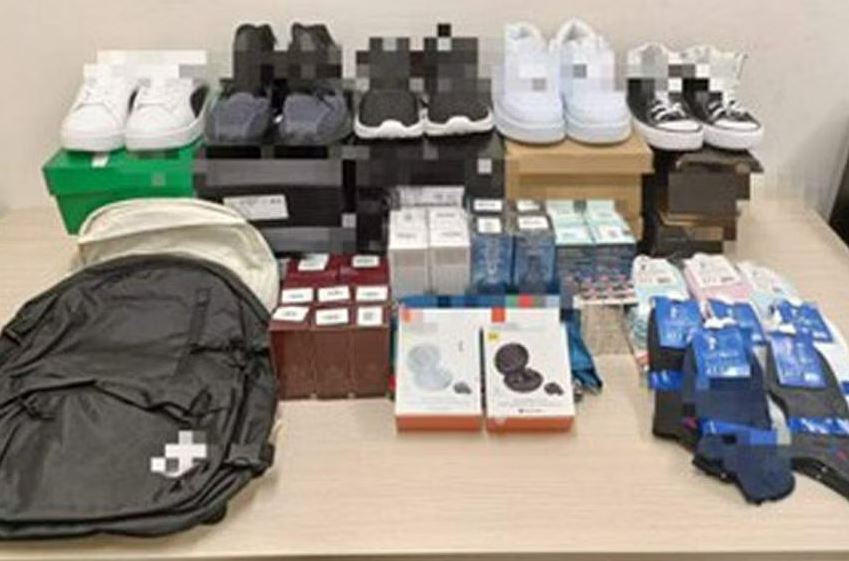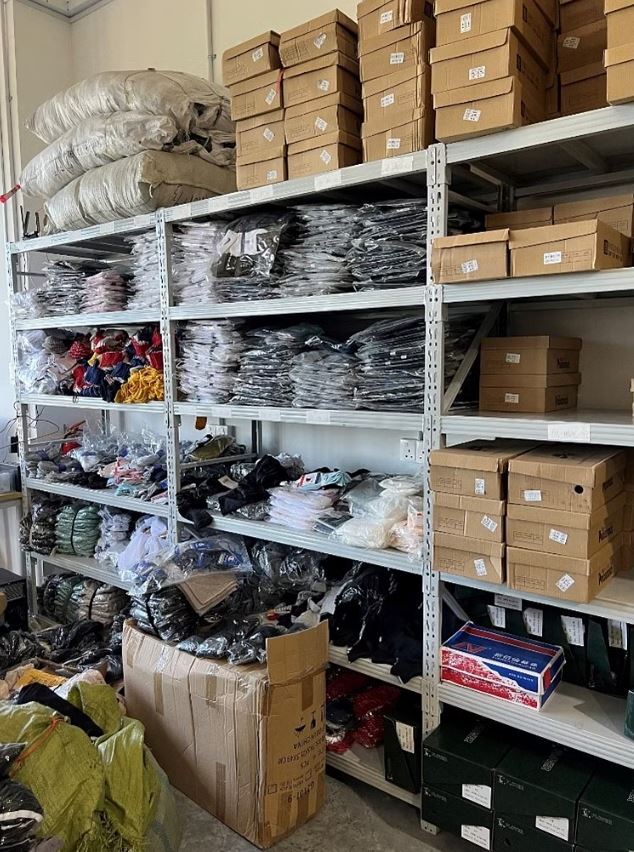The Singapore Police Force arrested a 50-year-old woman and a 37-year-old man for allegedly selling counterfeit products online with an estimated worth of more than $260,000.
According to The Singapore Police Force’s statement on Thursday (11 May), officers from the Criminal Investigation Department (CID) conducted an operation along Corporation Driver on Wednesday (10 May) that saw more than 7,300 alleged counterfeit products being seized.
Among the seized items include bags, footwear, wireless earpieces, apparel, fragrances and cosmetic products which the police said had infringed trademarks.
At the time of writing, police investigations are underway.
The police said that they take a serious view of intellectual property rights infringement and added that the selling and distributing of counterfeit goods were serious offences, and that they will not hesitate to take tough actions against those who profit at the expense of legitimate businesses and consumers.
Persons found guilty of possessing fake goods for the purpose of trading face a jail term of up to 5 years and/or a fine of up to $100,000.
Counterfeit products
Counterfeit products, also known as fake or knockoff products, are items that are made to look like and sold as authentic products, but are actually imitations produced without authorization.
These products can range from luxury goods such as designer clothing and handbags to everyday items like electronics, medications, and even food products.
Counterfeit products have become a major problem for businesses and consumers alike, with estimated losses of over $460 billion globally each year.
The production and sale of counterfeit products are illegal and can be harmful to both consumers and the economy.
Counterfeit products are often of lower quality than the genuine article, and can even be dangerous, containing harmful substances or components that can cause harm to consumers.
In addition, counterfeit products can damage the reputation of genuine brands, leading to loss of trust and revenue for businesses.
Consumers may be exposed to dangerous chemicals or ineffective ingredients, resulting in harm. The sale of counterfeit products also undermines the integrity of markets and can result in lost revenue for legitimate businesses.


